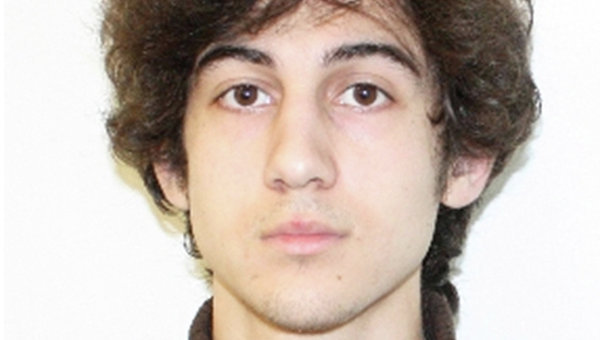BOSTON, November 28 (RAPSI, Ingrid Burke) - The US federal court adjudicating the case of suspected Boston Marathon bomber Dzhokhar Tsarnaev denied numerous requests for discovery filed by the Tsarnaev defense team, but granted the defense team’s motion to compel audio recordings of certain phone calls made in Tsarnaev’s prison facility, according to court documents.
After the government’s production in early September of automatic discovery materials, the defense team requested additional discovery. Displeased with the government’s reaction, the defense moved to compel the production of certain information, in line with nine requests for discovery.
The defense pointed specifically to Tsarnaev’s rights in accordance with US Supreme Court case Brady v. Maryland and its progeny. As the court explains, “In a line of cases beginning with Brady, the Supreme Court has made clear that the prosecution in a criminal case has an affirmative duty to disclose information in its possession that is favorable to the defendant and material to the question of guilt or punishment.”
Citing relevant case law, the court states that the Brady case did not create a general constitutional right to discovery in criminal cases. The order added that where the defense has filed only a general request for Brady material, the government’s disclosure decision will generally be viewed as final, unless it turns out that exculpatory evidence was withheld.
The court notes in this regard that: “The defendant’s requests for further production are not specific and targeted but rather broad and categorical.”
The order describes the prosecutors’ various requests as having applied to “all documents” within certain categories,” and similarly broad scopes of information in others, based generally on the theory that provided access to all such materials, Tsarnaev will have the opportunity to find evidence that may support a potential death penalty mitigation case.
But the court asserts: “That argument turns the Brady doctrine on its head. Under Brady and following cases, it is the government’s responsibility to identify and provide exculpatory material in its possession, an obligation that is enforceable by vacation of a conviction obtained when a breach of that obligation is demonstrated.”
For similar reasons, the court held that the defense’s requests for evidence largely fail under Rule 16 of the Federal Rules of Civil Procedure (FCRP). Rule 16 requires the government to permit a criminal defendant to examine certain tangible materials, so long as certain elements are satisfied, including the requirement that the item sought is relevant to preparing the defense.
Citing recent case law, the court explains: “The information requested to be produced must be ‘material’ to the defense, and the defendant bears the burden of making a ‘prima facie showing of materiality.’” The order goes on to state that the information sought must be both relevant in terms of being logically connected with the issues at hand, and material in terms of “having some significant tendency to ‘alter the quantum of proof in [the defendant’s] favor.’”
Tsarnaev, the court asserts, has failed to make a prima facie showing of the materiality of the information sough under his discovery requests, relying instead on “general assertions.”
The order goes on to liken the defense team’s quest for discovery to a hunt for a needle in a haystack: “The defendant has not made a prima facie showing of materiality under any of these formulations. He essentially seeks access to the government’s information haystack because he is confident there are useful evidentiary needles to be found there.”
The court did, however, satisfy Tsarnaev’s request for audio recordings of certain phone calls that were made in his Massachusetts federal prison.
In this regard, the court notes that the audio recordings may provide information “beyond the meaning of the words themselves as they appear in a transcript, such as vocal inflection.” The order stipulated, however, that the recordings should be accessible only to Tsarnaev and his defense team – as a precautionary measure in light of fairness and impartiality in the impending jury selection.
At about 2:49pm on April 15, two explosions occurred near the finish line of the Boston Marathon. IEDs devised from pressure cookers, low explosive powder, shrapnel, adhesive, and other materials were hidden in backpacks that were then placed near metal barricades in areas packed with hundreds of spectators.
According to a related indictment, “Each explosion killed at least one person, maimed, burned and wounded scores of others, and damaged public and private property, including the streets, sidewalk, barriers, and property owned by people and businesses in the locations where the explosions occurred.”
The following four days were consumed by a dramatic and at times extremely violent manhunt for the suspects, who were identified by name on April 19 as Dzhokhar (then 19) and his brother Tamerlan Tsarnaev (26). The manhunt entailed the presence of thousands of law enforcement personnel from local, state, and federal agencies, and resulted in a veritable lockdown through parts of the greater Boston area.
Tamerlan was killed during a police shootout, and Dzhokhar was arrested on the evening of April 19 after having been discovered hiding in a dry-docked boat in the Boston suburb of Watertown.
He was then charged in a criminal complaint dated April 21 with the use of a weapon of mass destruction and malicious destruction of property resulting in death.
Then on June 27, a federal grand jury returned a 30-count indictment against Dhzokhar. The charges include the use of a weapon of mass destruction resulting in death and conspiracy and the bombing of a place of public use resulting in death and conspiracy among others.
According to an accompanying FBI press release, seventeen of these charges carry sentences of up to life imprisonment or the death penalty, and the rest carry sentences of life imprisonment or imprisonment for a fixed period.
At an arraignment hearing on July 10, Dzhokhar pleaded not guilty to all charges pending against him.



